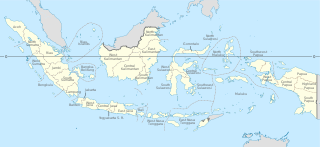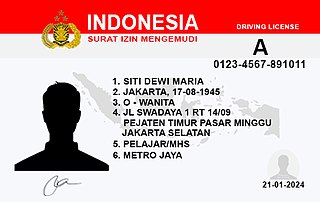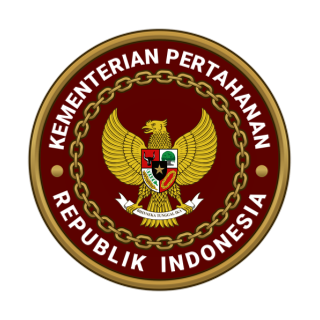Related Research Articles

Provinces are the first-level administrative divisions of Indonesia. It is formerly called the first-level provincial region before the Reform era. Provinces have a local government, consisting of a governor and a regional legislative body. The governor and members of local representative bodies are elected by popular vote for five-year terms, but governors can only serve for two terms. Provincial governments have the authority to regulate and manage their own government affairs, subject to the limits of the central government. The average land area of all 38 provinces in Indonesia is about 49,800 km2 (19,200 sq mi), and they had an average population in mid 2023 of 7,334,111 people.

The following table indicates declared Indonesian government national holidays. Cultural variants also provide opportunity for holidays tied to local events. Beside official holidays, there are the so-called "libur bersama" or "cuti bersama", or joint leave(s) declared nationwide by the government. In total there are 16 public holidays every year.

Indonesia's Legislation on Chinese Indonesians were conducted through a series of constitutional laws and directives enacted by the Government of Indonesia to enforce cultural assimilation of ethnic Chinese in Indonesia with the wider Indonesian society. The legislations mostly regulated individual naming conventions and business statutes.
Indonesia is divided into provinces. Provinces are made up of regencies and cities (kota). Provinces, regencies, and cities have their own local governments and parliamentary bodies.

The Sultanate of Yogyakarta, officially the Sultanate of Ngayogyakarta Hadiningrat is a Javanese monarchy in Yogyakarta Special Region, in the Republic of Indonesia. The current head of the sultanate is Hamengkubuwono X.

An Indonesian passport is a travel document issued by the Government of Indonesia to Indonesian citizens residing in Indonesia or overseas. The main governing body with regards to the issuance of such passport(s), possession(s), withdrawal and related matters is the Directorate General of Immigration under the Ministry of Law and Human Rights. Indonesia does not recognize multiple citizenship for its citizens and such citizens will automatically lose their Indonesian citizenship if another citizenship is acquired voluntarily. Special exceptions allow newly born citizens to hold dual nationalities until his/her eighteenth birthday after which a choice of either nationalities should be decided. The latest Indonesian passport has different national birds and sceneries on each page.
Law of Indonesia is based on a civil law system, intermixed with local customary law and Dutch law. Before European presence and colonization began in the sixteenth century, indigenous kingdoms ruled the archipelago independently with their own custom laws, known as adat. Foreign influences from India, China and the Middle East have not only affected culture, but also the customary adat laws. The people of Aceh in Sumatra, for instance, observe their own sharia law, while ethnic groups like the Toraja in Sulawesi still follow their animistic customary law.

The Presidential Decree of 5 July 1959 was issued by President Sukarno in the face of the inability of the Constitutional Assembly of Indonesia to achieve the two-thirds majority to reimpose the 1945 Constitution. It was army chief of staff Abdul Haris Nasution who concluded that this would be the only way to bring about the reintroduction of a constitution that paved the way for the military to play a greater role in the running of the state, ushering in the period known as the "guided democracy" (1959–1966).

Awards and decorations of the Republic of Indonesia are both military and civilian awards for service and personal contributions to the Republic of Indonesia. According to the Constitution of Indonesia, Chapter III Article 15: "The President grants titles, decorations and other honors as regulated by Law".

The Indonesian driving license is a legal document required for a person to be allowed to drive a motor vehicle in Indonesia. It is issued by the Indonesian National Police (POLRI), renewable every 5 years, and is valid in all ASEAN member states without an International Driving Permit. Driving license holders are subject to all Indonesian road rules and regulations. There is no provisional driving license in Indonesia.
The Surat Perjalanan Laksana Paspor is an Indonesian travel document issued to persons who do not have other appropriate travel documents, for the purpose of proceeding to and from Indonesia. There are several categories of SPLPs, covering both Indonesian citizens and non-Indonesian citizens. Indonesia also issued a travel document known in English as an Alien Passport, a two-year 24-page document which is separate from the SPLP.

The Star of the Republic of Indonesia is Indonesia's highest order awarded to both civilians and the military for their merits to the republic and the people. It was officially instituted in 1959.

The Ministry of Defense is an Indonesian government ministry responsible for the defense of Indonesia. The ministry was formerly known as the Department of Defense until 2009 when the nomenclature changed based on Act Number 39 of 2008 on State Ministries, the name of the Department of Defense was changed to the Ministry of Defense of the Republic of Indonesia. The currently-appointed minister is Sjafrie Sjamsoeddin, replacing Prabowo Subianto, who was elected President, on 21 October 2024.

The Attorney General's Office of the Republic of Indonesia is the competent authority to advise the Government of Indonesia on matters of law. It serves as the central organization for the Indonesian Public Prosecution Service. The Attorney General's Office is seated in the national capital Jakarta.
In Indonesia, state-owned enterprises play an important role in the national economy. Their roles includes contributor for national economy growth, providing goods or services which are not covered by private company, employment provider, providing support guidance to small and medium businesses, and source of government revenue. The Ministry of State Owned Enterprises represents the government's function as a shareholder of most of those companies, while some are represented by the Ministry of Finance.

The Commander of the Indonesian National Armed Forces is the professional head and highest-ranking officer of the Indonesian National Armed Forces. Directly answerable to the president of Indonesia, the position is held by any four-star officer who previously served as Chief of Staff of the Army (KSAD), Chief of Staff of the Navy (KSAL) or Chief of Staff of the Air Force (KSAU).

The Chief of Protocol (CoP) is a government official who heads the protocol department of a state, overseeing security, logistics and etiquette in diplomatic and national functions. A protocol department decides on diplomatic immunity and privileges, diplomatic host security, diplomatic use of airspace and it is the guardian of official etiquette. Advance protocol teams, usually headed by the Chief of Protocol, engage as first contact between governments for the planning of bilateral and multilateral summits and visits.
In Indonesian law, the term "city" is generally defined as the second-level administrative subdivision of the Republic of Indonesia, an equivalent to regency. The difference between a city and a regency is that a city has non-agricultural economic activities and a dense urban population, while a regency comprises predominantly rural areas and is larger in area than a city. However, Indonesia historically had several classifications of cities.

The Public Prosecution Service of the Republic of Indonesia is the government agency of Indonesia authorized for conducting public prosecution in Indonesia. It has other duties and authorities over certain matters as prescribed by laws.

The State Gazette of the Republic of Indonesia is the official government gazette of the Government of Indonesia. In issuing laws and regulations, the State Gazette acts as a reference for publication of all forms of announcements, orders, and regulations.
References
- ↑ Organisasi LVRI
- ↑ Undang Undang Republik Indonesia Nomor 15 Tahun 2012 tentang Veteran republik Indonesia (Lembaran Negara Republik Indonesia Tahun 2012 Nomor 182, Tambahan Lembaran Negara Republik Indonesia Nomor 5342)
- ↑ Suharto (7 August 1967). "UU 7/1967, Veteran Republik Indonesia". UN Mission in Timor. Archived from the original on 16 November 2007. Retrieved 2007-11-27.